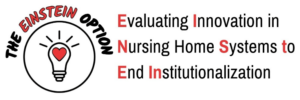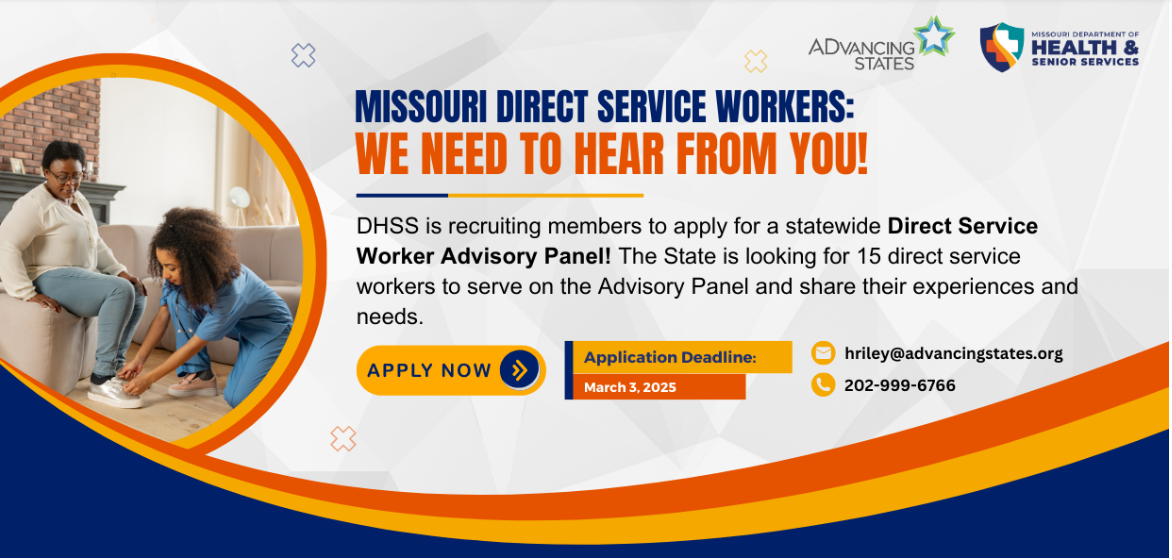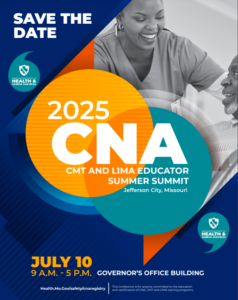Snow and ice are a mainstay of Missouri winter weather. Because of the variety of weather conditions as well as other events, facilities must have an emergency preparedness plan and be ready to act in an emergency to ensure they are to adequately prepared to meet the needs of patients, clients, residents, and participants during disasters and emergency situations.
If your facility experiences a loss of a necessary service (electricity, water, gas, phone, etc.), contact SLCR via the Regional Office emergency phone line and keep them informed of their status. If, for some reason, the facility cannot contact SLCR staff through the regional office phone number, you should contact the hotline. The emergency protocol is located here.
When you call, be prepared to answer to the following:
Facility name
- Census, including staff assessment of current needs of the residents and monitoring of the ill.
- Contact person and emergency contact number that is not the facility main line.
- Has the facility called the fire department and central monitoring company if phones, alarm systems are down?
- Generator: Y/N
- If yes, what equipment does the generator serve (fire alarm, HVAC systems)?
- If yes, amount of fuel onsite and/or system for delivery? How long will fuel last?
- If no, what is fire watch plan?
- If no, how will the facility ensure resident needs are met, including maintenance of room temperatures in a safe manner?
- Obtain generator- is the home set up to receive generator power once delivered? Estimated time for delivery? Estimated time when generator power will be established.
- Evacuation- Where is facility relocating to, distance from facility, transportation to get there, staffing, sufficient supplies/medications, how will the facility ensure resident needs are met, including maintenance of room temperatures in a safe manner (does the location have a functional emergency generator?) If relocating to a SNF – will the home be over capacity? Is there sufficient beds/space in the receiving facility to house the extra residents?
- Documentation may be requested, including:
- If evacuated, a list of residents and were they went
- Room temperature logs
- Fire watch documentation
Here are a few things to consider in examining your emergency preparedness plan, specifically as it relates to snow, ice, and power outages.
- If there is a loss of the primary power, how will the facility ensure adequate temperatures of the facility will be maintained during the emergency situation?
- Is the plan feasible?
- Plan for the worst. Most events do not occur on a sunny Tuesday afternoon and the plan should account for things such as poor weather, road conditions, weekends/holidays, evenings, staff ability to travel to work, and other obstacles that may cause issue during the actual emergency.
- Are staff knowledgeable of the plan and have access to what is needed in order to implement the plan?
- Phone numbers, contact persons, contracts.
- Do staff know what to do during an emergency and know who is in charge? If the administrator is not onsite, who is in charge and does that person know all their duties?
- This may be the DON, but it may also be a charge nurse (or another designated onsite staff) if the event happens in the “middle of the night”. Depending on when the administrator or someone higher up on the order of succession can arrive at the facility, that person (i.e. night charge nurse) may be in charge for an extended amount of time.
- Is the plan detailed enough?
- Is there a detailed plan that describes when the residents will evacuate during an emergency? If loss of power, does the plan instruct the staff to start the evacuation prior to the point when the facility is below appropriate air temperatures and to maximize their safety during travel? What is the distance to the emergency evacuation site? What types of roads do they have to traverse, such as “side roads”, bridges, or interstates; all of these roads can have their challenges. Does the facility have more than one contracted emergency site?
- Is it likely that emergency events will also impact the surrounding areas? It is also possible that the evacuation site may be so far away, residents may not be able to get there when road conditions are less than optimal. Does the contracted site meet all the criteria to allow the residents to shelter in place at that location?
- Is there a contract for transportation and will that transportation be able to get the residents to and from their current location to the contracted emergency location in a snow/ice storm? If the services have other contracted uses, such as school buses, will they be available at 3:00 P.M. on a school day or can they get drivers at 3:00 A.M. on a Wednesday?
- Does the facility have a generator?
- Is there enough fuel, a contract to get more fuel, and a list of what it does and does not operate?
- Facilities (and the staff in charge) need to know in advance, what their generator will operate. At a minimum, this listing must include whether it runs: Life safety equipment (such as E-lights and fire alarm system(s)), magnetic door locks/door alarms (where applicable for safety), HVAC systems, cooking systems, what outlets residents and staff will be able to be use, and computer equipment/Wi-Fi (if electronic medical records (EMR) are utilized).
- This list needs to be detailed so staff will know specifically what items will and will not work during a power outage. Many generators will run every second or third ceiling light for emergency lighting, but not all lights in the facility will work during a power outage. This needs to be listed so all staff will know that information.
- If a facility does not have a generator, what are the plans when it may not be easily able to evacuate due to poor road conditions or other factors that may prohibit a smooth transition from a facility to another location?
- If the facility plans to have a generator delivered during a loss of power, does the facility have a contract with the generator company to deliver one to them? This contract should include the size of the generator that the facility will need in order to ensure the safety and care needs of the residents are met during the emergency.
- The building will need to be wired and ready to accept the generator in advance. The facility will not be able to install a generator during the emergency event unless the wiring for the generator has already been completed.
- Facilities must maintain at least their fire safety equipment (E-lights, fire alarm, sprinkler system, range hood (if any cooking occurs), food, water, heating and cooling, and sewage disposal to shelter in place.
- There must be a plan of how this will be achieved, emergency supplies, the detailed list of what the generator will run, and any contracts that will be needed during the emergency to ensure these services can continue during the emergency event.
- Sometimes trucks will not be able to run regular schedules and it may take several days before the facility can get their first delivery after an emergency starts; depending on the extent and severity of the disaster.
- A power outage may be as simple as a blip, may last for hours, or may last for days – depending on the extent of the power grid damage and when the crews can access the problem(s).
- The facility needs a plan of when, how, and where they will evacuate if they cannot provide at least the components of the previous bullet point.
During a disaster is the least ideal time to learn an emergency plan will not work or to search for a contracted service. All contracted services including, but not limited to, transportation, fuel needs, evacuation location, food, and water needs to be in the emergency plan. The emergency preparedness team needs to consider and plan all services and contract prior to an actual emergency. During an emergency, it may be very difficult or impossible to get a contracted service due to volume of request, road conditions, and/or other factors.
Thank you for preparing in advance and keeping us informed!



